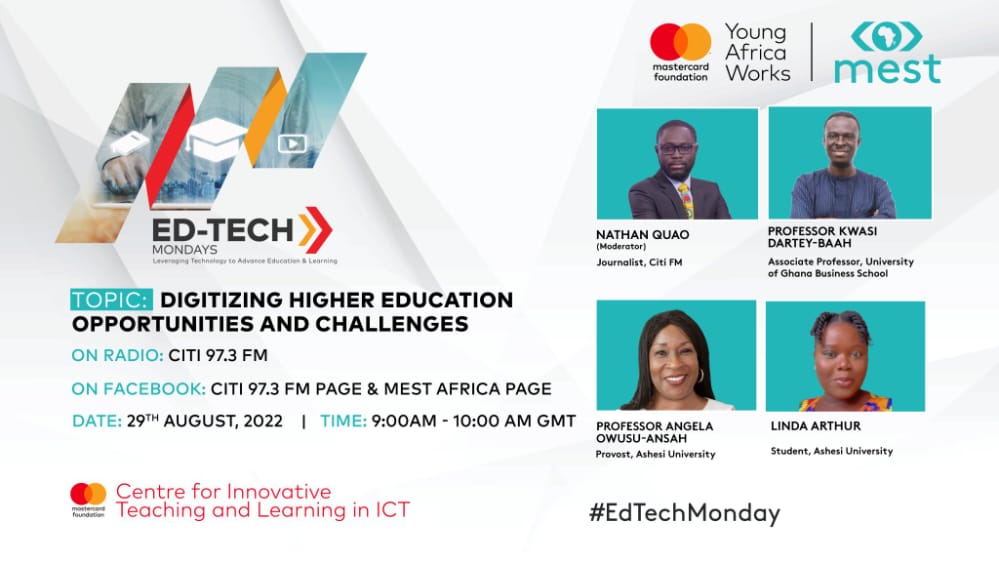Provost of Ashesi University, Prof. Angela Owusu-Ansah has underscored the need for modifications to be made to the current methods of teaching students online for better learning outcomes.
“For us to gain from those who have the knowledge, we must maximize online learning techniques to make online learning as a near in-person experience and reduce the main challenges that come with online teaching”, she said on EdTech Monday on the Citi Breakfast Show.
She suggested the introduction of podcasts and self-recording, among other things, and new ways of assessing students.
“There is a clear distinction between blended learning and hybrid learning. We should be clear on what we are doing to know which kind of support each one needs. One of the things that can be done is higher-order thinking to reduce malpractices in assessment. There are so many ways that can be explored to optimize online learning.”
In a bid to streamline online learning at the tertiary level, lecturers are pushing for more robust Information Technology Communication (ICT) platforms to aid such modes of teaching.
Associate Professor at the University of Ghana Business School (UGBS), Kwasi Dartey-Baah for instance pushed for a ‘deliberate policy shift’ aimed at eliminating the challenges brought on by the online means of interacting students.
This he says will help streamline online learning at the tertiary level, if a more robust Information Technology Communication (ICT) platform is provided to aid such modes of teaching.
“There should be that deliberate policy shift to help the ICT infrastructure, especially on our university campuses. There must be that kind of support to be able to develop the facilities, so the universities are able to offer the services to the students. So there must be a deliberate investment in the area of ICT.”
He also mentioned that other support including the provision of equipment, affordability of data, and easy or subsidized acquisition of laptops by students among others remain major hurdles that need addressing.
“The telcos must provide support for a lot more to make our online learning more effective. Lecturers must be trained and equipped with the technical know-how to understand students. There must be support for staff and faculty. It should be a bit more encompassing and all primary stakeholders in this regard must have their needs factored into any future plans”, he suggested.
EdTech Mondays is an initiative of the Mastercard Foundation’s Regional Centre for Innovative Teaching and Learning in ICT and part of the Foundation’s strategy to find solutions to Africa’s youth employment by closing the gap in access to quality education, and advancing the integration of technology in education policies and practices across Africa.
To realize this vision in Ghana, the Mastercard Foundation has partnered with MEST Africa, a pan-African technology institution to bring EdTech Monday, on the last Monday of every month.
About MEST
MEST offers Africa-wide technology entrepreneur training, internal seed funding, and a network of hubs providing incubation for technology startups in Africa.
Founded in Ghana in 2008, MEST provides critical skills training, funding, and support in software development, business, and communications to Africa’s tech entrepreneurs. Hubs are located in Accra, Ghana; Lagos, Nigeria; Cape Town, South Africa; and Nairobi, Kenya.
To date, MEST has trained over 500 entrepreneurs from across the continent and invested in over 80 startups across industries from SaaS and consumer internet, to eCommerce, Digital Media, Agritech, Fintech and Healthcare IT.
MEST is primarily funded by the Meltwater Foundation, the non-profit arm of Meltwater, a global leader in media intelligence and Outside Insight.
